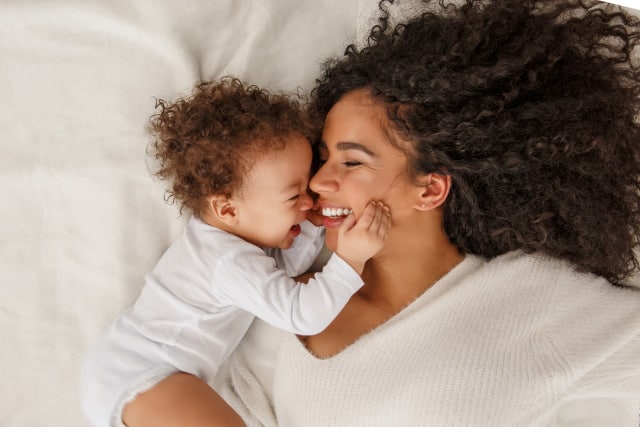The Accidental Lip Biter
If you're an accidental lip biter, but it seems to happen to you all the time, you probably need to chat with your dentist. It's possible that your bite is misaligned, called a malocclusion, or maybe you need treatment for TMD, temporomandibular joint disorder. The point is — your dentist needs to evaluate the situation so you can stop getting a fat lip every time you're out to sushi with friends.
The Habitual Lip Biter
You might find yourself biting your lip without realizing it, possibly as a nervous habit. You wouldn't be alone. Chronic lip biting is a common anxiety symptom and can even be an example of a body-focused repetitive behavior, or BFRB. Once you identify your biting as a nervous habit, you can start to consciously adjust your behavior, and even reach out to friends and family for support.
Why is lip biting bad?
Other than the pain that can come from biting your lip, there are other concerns for your oral health and overall wellbeing, too. Chronic lip biting can cause swelling, rawness and sores. Repeatedly biting the same area can even cause fibromas to develop. Additionally, you could end up with jaw pain and headaches.
Tips to kick the lip biting habit
It's important to protect your lips from damage and that can be especially tricky when you're the culprit. Whether you're chomping down by accident or biting out of anxiety, there are lots of solutions available to help you get on track to healthier lips, and a healthier you!
- Exfoliate dry lips To keep yourself from chewing on rough, dry lips, be sure to exfoliate your lips 2-3 times a week before bed and then apply a thick, rich moisturizer to deeply hydrate overnight.
- Moisturize constantly Keep your lips nourished to prevent the urge to chew or bite them. If necessary, find a lip balm that doesn't taste great so that if you do bite your lip without thinking, you're immediately deterred by the taste.
- Practice mindfulness When you're dealing with something like lip biting, the problem is often that you're already doing it before you realize it. The practice of mindfulness allows you to be present in your body, in the moment. Take notice of what you're feeling, what's around you, what you smell and see. Take a deep breath. Can you identify any triggers that might have led you to start biting your lip? Give yourself a few more moments of breathing and awareness before resuming whatever you were doing. Hopefully, this will relax you and relieve some of the stress that may have triggered the lip biting. The more you practice mindfulness, the more this habit will begin to replace the lip biting!
- Try progressive muscle relaxation (PMR) PMR is a technique often used to control anxiety and stress. It's based on the practice of tensing certain muscles at a time and then releasing them, allowing those muscle to experience a deep relaxation. By focusing the mind on a series of muscle groups, and shifting your anxious state into one of relaxation, it can help ease the physical anxiety symptoms you were experiencing, like lip biting.
- Explore behavioral therapy as an option Sometimes the best route to changing subconscious behaviors is understanding the root causes and triggers and learning skills to help you moving forward. A licensed therapist will be able to guide you through this process.
Oral Care Center articles are reviewed by an oral health medical professional. This information is for educational purposes only. This content is not intended to be a substitute for professional medical advice, diagnosis or treatment. Always seek the advice of your dentist, physician or other qualified healthcare provider.
ORAL HEALTH QUIZ
What's behind your smile?
Take our Oral Health assessment to get the most from your oral care routine
ORAL HEALTH QUIZ
What's behind your smile?
Take our Oral Health assessment to get the most from your oral care routine















